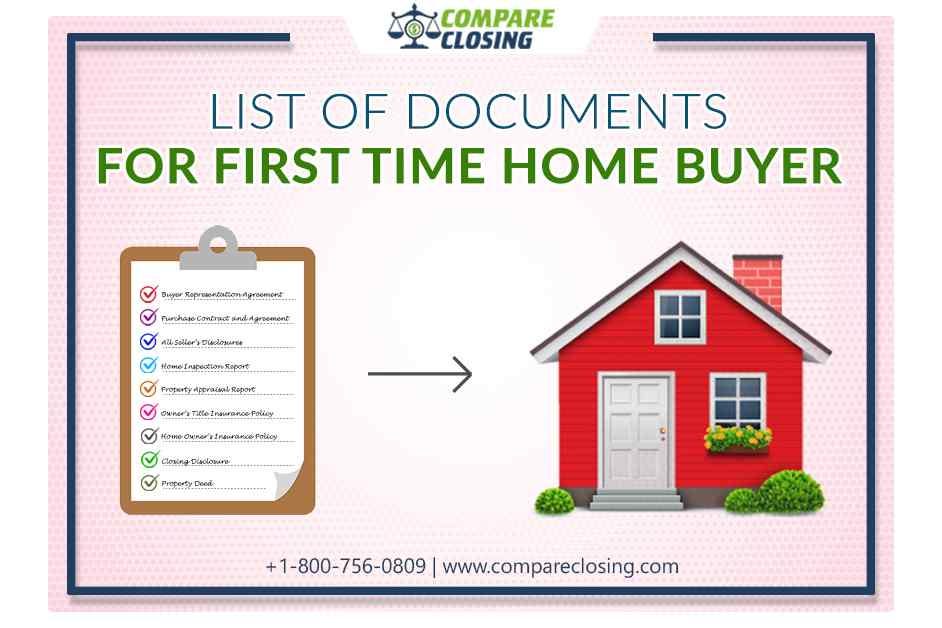
Documents List For First Time Home Buyer in Texas
While closing on your dream home as a first time home buyer in Texas, you might have signed many documents.
What were those documents? The title company gave you a copy of documents on your way out of closing, and possibly you placed those documents somewhere never to see them again.
Let us know what documents to keep for the first-time home buyer and where can you get those documents if you have accidentally misplaced them.
Let us know the documents which are super important that you would want to keep as a first-time home buyer. When you started the process of buying the home, your realtor might have provided you with some documents.
The best way to secure them is to maintain a binder or a folder physically, or you can back up the digital copies of the documents as and when you receive them on your computer or cloud storage.
1: Buyer Representation Agreement
The first document you would want to secure as a first-time home buyer is the “Buyer Representation Agreement”.
This is the agreement that was signed in the early stages of your home buying experience with your trusted real estate advisor who is working as your buying agent. This would include all the agreements that you and your agent had.
2: Purchase Contract and Agreement
The next document to consider is “Purchase Contract and Agreement”. When you signed the purchase contract, it could include any counteroffers you had made or any contingencies between you and the seller.
It is essential to keep this document because it shows your exact contingencies with dates and what was agreed on by the seller.
3: All Seller’s Disclosures
The next one to retain would be “ All Seller’s Disclosures”. These are also known as seller’s property disclosure along with any other disclosure that might be part of your home buying experience.
They might be in the form of written or verbal notes. If it is an oral disclosure, your real estate agent might have documented it in the form of an addendum or an email that can be attached to the file.
It is suggested you retain any and all seller’s disclosures for your future reference.
4: Home Inspection Report
The next thing you want to retain would be your “Home Inspection Report”. You must document any repair request you have suggested during the process from the seller.
You may want to keep any repair receipts received from the seller in response to your request and add them to your documents list.
5: Property Appraisal Report
Once you retain that next thing you might want to consider as a first-time home buyer is “Property Appraisal Report”.
This is a document provided to you by your loan officer/lender after your home appraisal was completed. You will need this document if there are any questions on the assessed value of the property at any given time.
6: Owner’s Title Insurance Policy
The next document to retain is your “Owner’s Title Insurance Policy”. This is one of the most important documents to be retained. It ensures that nobody has a claim to the property you are buying.
In any event, if there are any disputes, this document provides insurance giving proof of your ownership. It also provides coverage for past problems in the chain of titles for the property’s history like missing mortgage discharges, forged signatures, etc.
7: Home Owner’s Insurance Policy
The next one to retain is “Home Owner’s Insurance Policy”. The reason you might want to retain this document is so that you can know what coverages and exemptions are included in your policy.
You also might want to review this document with your insurance agent every year, making sure the insurance is updated annually.
8: Closing Disclosure
“Closing Disclosure” is the next document to be retained as a first time home buyer in Texas. This is provided to you by your loan officer/lender 3 to 4 days in advance of your closing date. It gives details about your loan and your closing costs.
You can go back to your closing disclosure any time when you have any questions about your loan terms, disclosures, and contact information. You can have this handy while filing your taxes to see what kind of write-offs you are eligible to get.
9: Property Deed
The final document you would want to retain is your “Property Deed”. Your property deed would have been recorded with your county assessor’s office. This document is set up by your title company, and you would receive a copy of it as well.
Conclusion
Even if you have misplaced your documents you can still get these documents from your real estate agent, your loan officer, title company, and your county assessor’s office.
If you are a first time home buyer in Texas, getting in touch with them would help you restore the missing documents.
https://www.compareclosing.com/blog/documents-for-first-time-home-buyer-in-texas/
Comments
Post a Comment